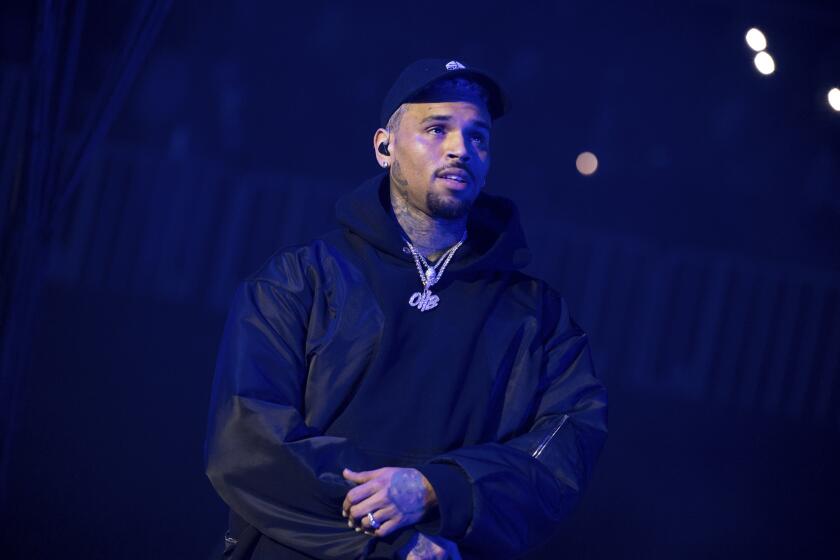Bunny Pays Homage To Marley the Master
- Share via
Reggae music doesn’t sound quite the same anymore.
The hypnotic “roots” style that Bob Marley forcefully brought to international recognition is still kicking, but the most popular reggae among Jamaican audiences during the ‘80s was the lively, groove-oriented “dancehall” style built on drum-machine rhythms and synthesizer bass lines.
Dancehall is giving reggae its first substantial foothold with young African-American audiences. American hip-hop/dance-music labels like Profile and Tommy Boy are now signing reggae artists and releasing compilations. J.C. Lodge’s “Telephone Love,” Foxy Brown’s “Sorry” and Marcia Griffiths’ “Electric Boogie” were East Coast hits, but they hardly created a ripple on the West Coast.
The variety of sounds under the reggae banner is the focus of this edition of On the Off Beat, a periodic review of roots, ethnic and non-mainstream pop from around the world. Albums are rated on a scale of one star (poor) to five (a classic).
**** Bunny Wailer, “Time Will Tell,” Shanachie. This is the way to pay tribute to Bob Marley. Bunny Wailer informally polled Jamaicans on their favorite Marley songs shortly after Marley’s death in 1981, took the island’s leading session musicians--including Sly & Robbie and the Roots Radics band--into the studio and cut 10 songs. Nothing fancy, nothing overly reveren tial--just a great singer and great players paying homage to a master by performing “Soul Rebel,” “Crazy Baldheads” and the title track with all the spirit and inventiveness they deserve.
** and **** King Tubby, “King Tubby’s Special, 1973-1976,” Trojan (English import). King Tubby, nee Osbourne Ruddock, helped invent “dub” reggae around 1970 by moving instruments or voices in and out of the sound mix and embellishing them with echo and reverb to create new versions of songs. Dub foreshadowed dance-music remixes, and when Jamaican deejays like U-Roy and Big Youth began rapping over the stripped-down rhythm tracks 20 years ago, it became a precursor of rap as well. “King Tubby’s Special” is a Jekyll-and-Hyde two-record tribute to Ruddock, who was murdered last year in Jamaica. The first is dub at its flattest--little more than instrumentals with extra echo. But the second record finds Tubby engaged in full-scale sonic guerrilla warfare on the arrangements, twisting voices and instruments into mutant shapes via spacey reverb flights and overkill echo forays. Constantly inventive, unpredictable music.
** 1/2 Junior Reid, “Big Life,” PolyGram. “One Blood” became a reggae-scene anthem last year and catapulted former Black Uhuru lead singer Reid to a major-label release. Reid adds a few rap touches to his signature yodeling on “Searching for Better,” while the up-tempo title track and “Married Life” are propelled by the instrumental backing of Steely & Cleevie, the dancehall equivalent of Sly & Robbie. But the arrangements are too monochromatic--Reid’s version of “Eleanor Rigby” is arresting in part because it offers the only change in dynamics.
Compilations:
** “Dancehall Stylee,” Profile. * 1/2 “Ram Dancehall,” Mango. ** “Fresh Reggae Hits,” Pow Wow. ** 1/2 “Fresh Reggae Hits, Vol. 2.,” Pow Wow. ** 1/2 “Jammy’s Chartbusters,” Pow Wow.
Like rap, dancehall has primarily been a singles medium, but don’t expect heavy message music--maybe 10% of the 50 songs on these spotty recent samplers address something other than love and romance. “Ram Dancehall” has nothing to follow J.C. Lodge’s “Hurricane,” while “Dancehall Stylee” and “Fresh Reggae Hits” offer energetic performances that suffer from lackluster material and one-dimensional arrangements again. “Jammy’s Chartbusters” boasts the appealing contrasts of rough-voiced deejays Tiger and Admiral Bailey against Leroy Gibbon’s falsetto on “Addicted to Your Love.” “Fresh, Vol. 2” gets points for its extended dub versions, a more varied collection of artists and the potent presence of Barrington Levy’s “Teach the Youth,” Lodge’s “Telephone Love” and Reid’s “Married Life.”
More to Read
The biggest entertainment stories
Get our big stories about Hollywood, film, television, music, arts, culture and more right in your inbox as soon as they publish.
You may occasionally receive promotional content from the Los Angeles Times.










